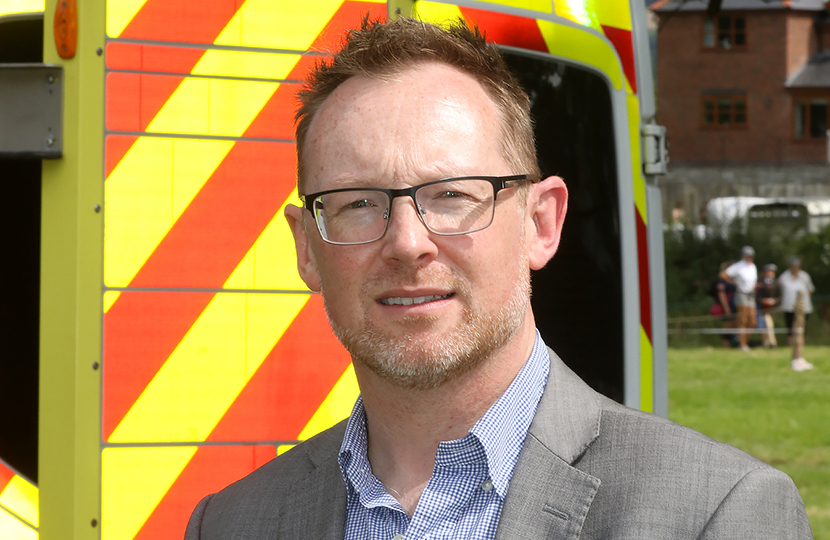
Last week marked the 74th anniversary of the creation of the national health service.
Our respect for this institution is down to the hard-working doctors, nurses, and various auxiliary staff that look after us even when they barely have the chance to look after themselves.
But if you love something, it cannot be all praise. We must highlight shortcoming. And there have been plenty of those during the devolution age.
Of course, the blame does not lie with those working tirelessly on the front line, suffering from burnout as much as patients suffer with long waits.
No, that is reserved for the governing party – in Wales, that is Labour and has been for quarter of a century, so there are no excuses for the poor outcomes inflicted in those who work in and use the NHS.
One good reason for them is coronavirus. That is fair – we see the consequences if Covid in across the United Kingdom. But we know this is an issue of governance because of the state of the NHS in Wales pre-pandemic when Wales was still the worse performing arm of the NHS before Covid struck – it recorded its worst A&E waits in 2019 and waiting times doubled in the year to March 2020.
It is also evident in the lack of recovery since then, especially when compared to elsewhere.
Look at the number of those waiting over two years in Wales. It is a staggering 68,000. That is an entire constituency and is five times the number for the whole of England, where the figure is steadily falling. In Wales, it increased nine-fold in a year and is holding firm.
This was probably not helped by the failure to plan. Labour’s then-Health Minister, Vaughan Gething, rejected Welsh Conservative calls for a recovery plan stating it would be “foolish” to have an NHS recovery plan before the end of the pandemic, which Labour say is not yet over.
We proposed solutions like regional surgical hubs and rapid diagnostic centres – but Labour said no. Even when they have agreed with our calls, the time lost in getting everything set up has cost us any advantage to make progress.
Meanwhile, NHS England is already putting such programmes in motion under decisive Conservative direction, which is why we are seeing improvements.
But Wales is also suffering when it comes to emergency care: in May, a third of patients waited over the four-hour target to be seen in A&E– one of the worst months for the Labour-run Welsh NHS on record.
In England, the equivalent figure was 27%. In Scotland, it was only 13% after months of hitting similar figures to England. The Welsh target to get 95% admittances seen in four hours has never been met in its 13-year existence.
While life-threatening ambulance calls in England (called Category 1) were met on an average time similar to Wales (where they are called red calls), its Category 2 calls were responded to in half the time they were in Wales (amber calls) – 40 minutes compared to 78.
And this is how it is every month. There is a sustained pattern of underperformance compared to elsewhere in the United Kingdom. Is it really right that people in the same country cannot have anywhere near the same confidence in their public services as others?
And it does not end there.
North Wales’ health board has been mired in numerous scandals and has been subject to numerous levels of governmental intervention including special measures.
The promised arm’s length NHS Executive responsible for improving the service’s governance will be subject to a huge power grab as the Labour Government chip away at its independence.
Labour have underfunded the Welsh NHS by £400m over the last decade, with a mammoth budget cut of £800m in 2012 – the only government in Britain to cut NHS spending in modern times. Since 2010/11, the UK Conservative Government has increased health spending in England by 29.2%, but the Labour Government has increased health spending by just 22.6%, costing NHS Wales £401m.
Sadly, instead of concentrating on the public’s priorities and the obvious and urgent need to address this crisis in NHS Wales, politicians in Cardiff Bay are stuck talking about expanding the Senedd as Labour and Plaid have teamed up to force 36 more politicians on the people of Wales at a cost of £100m, all the while a cost-of-living crisis rages.
How can we sanction this when 1-in-5 people are on a waiting list, 1-in-4 of them waiting over a year?
I think it is fair to say that to put more politicians ahead of fixing the crisis the NHS finds itself in is a dereliction of duty that will have consequences that are not fully appreciate yet.
Labour needs to get a grip on the NHS and stop breaking all the wrong records. NHS Wales will see its 75th anniversary but whether it will see its hundredth is a different matter.



